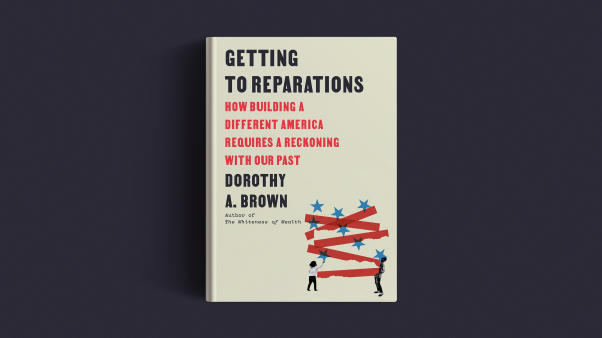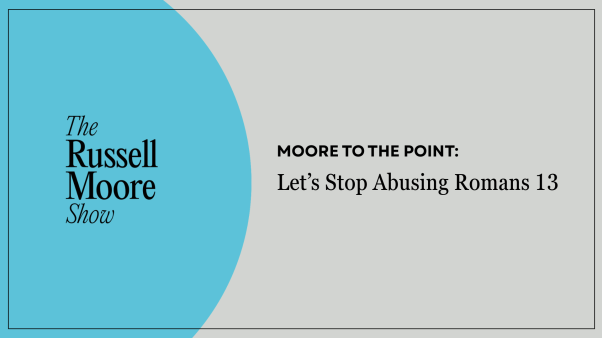This piece was adapted from Russell Moore’s newsletter. Subscribe here.
“I saw on a news clip that Bible sales are up,” a woman said to me this week. “Does that mean we are in a revival?”
The news reports this woman noticed are consistent with what Bob Smietana at Religion News Service cited from a new Pew Research Center study: A growing number of Americans—almost a third—now believe religion’s influence is rising in America.
Last week, my friend David French noted in his New York Times column that he senses a changing spiritual temperature, but argued that it might not be revival we are feeling. French sees something more like a revolution—a movement that combines the language of faith with what political scientist William Galston calls the “dark passions” of anger, resentment, and revenge.
At the same time, in recent years we have seen signposts of what very few would doubt are moments of revival—the renewal at Asbury University, for instance. Whatever one thinks of the word evangelical these days, one mark of virtually anything included in that designation is a hope for and openness to revival.
It seems that this is a time of both warning and hope. One kind of revival is a sign of God’s favor, another kind a sign of God’s absence—and we ought to pay attention to both.
Almost 20 years ago, Jewish commentator David Frum, now at The Atlantic, offered an outsider view on why evangelical Christians seemed to so often want to claim their brand as a “majority” in American life—silent or moral or “real American.”
“Christian conservatives often react with hostility to bad news, even when they hear it from their friends,” Frum wrote. “Good populists, they confuse the observation that they are losing with the opinion that they ought to lose. And they usually reply to bad news by citing polling data that indicate substantial public support for their positions.”
I winced when I reread these words after all these years. While I don’t think I’m anybody’s idea of a populist, I can see how, at least psychologically, I did indeed embody the mindset Frum described. That was often, for instance, one of the ways I argued for the superiority of evangelical Protestantism to the mainline denominations—or how I argued that my more conservative Baptist wing was superior to the Baptists on our left. Our churches were growing, and their churches were not.
To some degree, my point was and is valid. After all, I was reacting to some of the more extreme liberalizing forces, which argued that modern people cannot accept virgin births or second comings, so Christianity must “change or die” by throwing the supernatural overboard. But if that argument worked on its own terms, then we should see Unitarian Universalist megachurches or global church-planting movements of congregations with rainbow flags. We don’t.
If someone said to me, “I want to quit my job and take up origami because I want to be a millionaire,” I might well respond by saying, “Have you ever seen a millionaire who became rich doing origami?” That would be addressing the argument on its own terms. But I would miss the chance to point out a more important problem: “You can’t even make a recognizable paper swan.”
Many of us went well beyond engaging the argument for revival on its own terms—often implicitly assuming that bigness is an argument for God’s blessing and that one’s “rightness” could be seen in the success itself. That argument, though, leads us to a heretical view of God.
If the growth of conservative evangelicalism in the late 20th century implied God’s approval of us, then did that mean God had previously approved of liberal mainline Protestantism when, in the first half of the century, it was growing? Back then, did God side with the massive and liberal Riverside Church in New York City and reject the small, struggling Gospel Mission down the street from it?
Was God an Episcopalian who became a Southern Baptist who became nondenominational and now has baptized himself with the Holy Spirit and become a Pentecostal? That’s the absurdity to which a metric of judging fidelity by “success” will lead.
Twenty-five years ago, the historian Martin Marty noticed this subtle change in us, in what he described as a shift from “truth claims based on unpopularity to truth claims based on popular success.”
Marty said the typical conservative evangelical mindset throughout history has included an insistence on an objective standard of truth—standing above and outside of history. This usually has resulted in what is considered strange, weak, and foolish when judged by the standards of the outside world. Marty pointed out that Jesus uses the metaphor of a “little flock” when speaking of his people, promising such as these the kingdom (Luke 12:32).
The implication in Jesus’ words is that those who follow him will be tempted to fear because they will feel, based on the evidence of quantifiable success, that they are endangered. The flock will be little when judged by the standards of human categories, but they will receive a kingdom given to them in Christ—and therefore not visible until he is (17:20–24).
When success is measured by public opinion, the stakes are high. When the sign of God’s favor is seen in popular response, we inevitably start to see the market—however that market is defined—as the revelation of God. And when the market shifts what it wants, the entrepreneurs must change with it. In some eras that means sexual “liberation,” and in others it means the humiliation of opponents.
Jesus describes the Beast of Revelation to John as having near-universal popularity and success: “Who is like the beast, and who can fight against it?” (Rev. 13:4, ESV throughout). In this case, what seems like revival is actually collapse, while what seems like collapse—believers being conquered (v. 7)—is actually revival.
Revival, as Jesus reveals it, entails a change of affection (2:4–5). Sometimes that is seen in explosive growth (as on the day of Pentecost), and at other times it is seen as a tiny remnant conserving what is true. In either case, the church—and individual Christians—should know both how to be “brought low” and how to “abound” (Phil. 4:11–12).
We should pray for revival. That starts with knowing what it is. Revival is not a market or an artifact. Revival cannot be controlled; it can only be received. Revival is the wind of the Spirit—a wind that often tears down a Babel before it calls out an Abram from Ur.
Revival doesn’t start with a blueprint or, God forbid, a marketing plan, but with a state of helplessness and dependence. When God showed Ezekiel a field full of dried-out bones and said, “Son of man, can these bones live?” the prophet responded, “O Lord God, you know” (Ezek. 37:3–4). That was the right answer. And it should be ours.
God can send revival. But that will mean, as it usually does, that the kind of religion the age wants—the kind that can be livestreamed and monetized—will first have to fall. Real revival is disturbing and disrupting, which is why so many of us, if left to ourselves, prefer the counterfeit kind.
Revival? We can’t handle revival. That’s the point. Revival—the real kind, the kind that can’t be controlled—handles us. And the first thing it blows away is the stick by which we measure our success.
Russell Moore is editor at-large and columnist at Christianity Today and leads its Public Theology Project.















